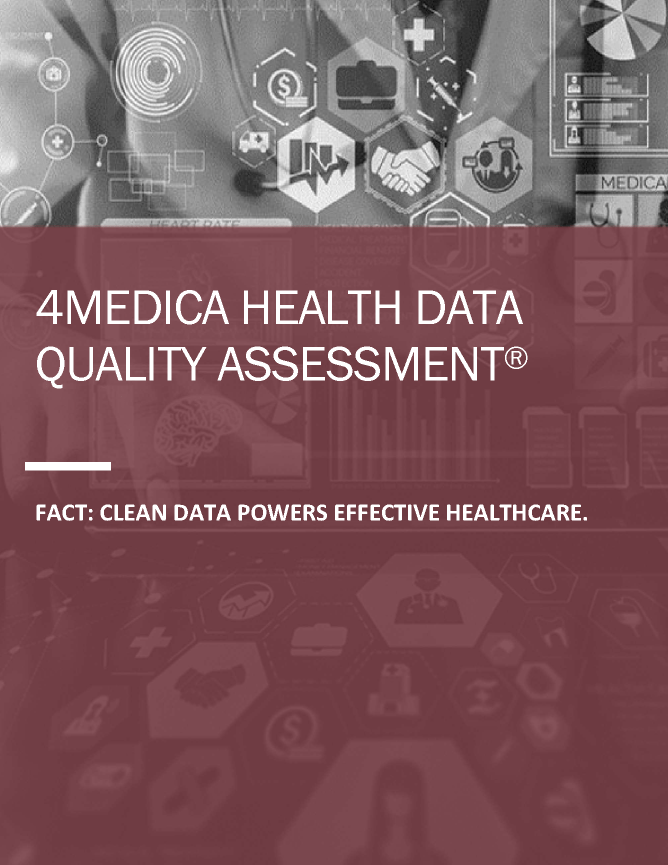In today’s digital era, managing and organizing vast amounts of patient data is a critical challenge for healthcare providers. The Master Patient Index (MPI) plays a pivotal role in addressing this challenge, serving as a central repository of patient information. This blog post will delve into the purpose of a Master Patient Index and discuss the essential requirements for an effective MPI implementation.
What is a Master Patient Index?

The Master Patient Index (MPI) is a comprehensive database that contains unique identifiers and essential demographic and clinical information of patients within a healthcare system. It serves as a central repository to consolidate and link patient data across multiple systems and facilities.
Key Functions of a Master Patient Index
There are many vital functions of a Master Patient Index that serve to improve overall organization data health and patient experience.
Patient Identification
One of the primary functions of an MPI is accurate patient identification. The MPI assigns a unique identifier, such as a medical record number (MRN) or a unique patient identifier (UPI), to each patient. This unique identifier is associated with the patient’s demographic and clinical data, allowing for efficient retrieval and linking of health records.
Data Integration
An effective MPI enables the integration of data from disparate sources and systems, ensuring a holistic view of a patient’s medical history. It consolidates information from electronic health records (EHRs), laboratory systems, radiology systems, and other healthcare applications. By aggregating and organizing data, the MPI provides healthcare professionals with a comprehensive understanding of a patient’s health status.
Data Integrity
Maintaining data integrity is crucial for an MPI. It ensures the accuracy and consistency of patient data by reducing duplication and errors. The MPI employs various techniques, such as data cleansing and duplicate record detection algorithms, to enhance data quality. Regular audits and data validation processes are also implemented to identify and rectify any inconsistencies or discrepancies.
Cross-Referencing
The MPI enables cross-referencing of patient records, ensuring that information from various sources is appropriately linked to the correct individual. This linkage allows healthcare providers to access comprehensive and up-to-date information about a patient, regardless of where the data originated. It facilitates accurate care coordination and supports informed decision-making.
Search and Retrieval
Efficient search and retrieval capabilities are essential for an MPI. Authorized users, such as healthcare providers, can quickly access patient information when needed. The MPI employs advanced indexing and search algorithms, enabling rapid retrieval of relevant patient records based on criteria such as name, date of birth, or unique identifier.
Unique Patient Identification
To ensure accurate patient matching and eliminate duplication, an effective MPI must implement a robust and unique patient identification system. This involves assigning each patient a distinct identifier, such as a medical record number (MRN) or a unique patient identifier (UPI). The identifier should be consistent across all systems and facilities within a healthcare organization to facilitate seamless data integration.
Accurate patient identification is crucial to prevent errors, improve care coordination, and enhance patient safety. With a reliable unique identification system, healthcare providers can confidently link patient information from various sources, ensuring a comprehensive view of the individual’s medical history.
Data Integration and Interoperability
A successful MPI should be able to integrate data from various sources, systems, and facilities, regardless of the vendor or technology used. This requires adherence to interoperability standards, such as Health Level Seven (HL7) and Fast Healthcare Interoperability Resources (FHIR). These standards ensure seamless exchange and sharing of patient information, enabling comprehensive and coordinated care.
By embracing interoperability standards, an MPI enables healthcare organizations to overcome data silos and create a unified view of patient information. This interoperability enhances care coordination, enables effective data exchange between healthcare providers, and supports informed decision-making.
Data Quality and Integrity
Maintaining data accuracy, consistency, and integrity is vital for an MPI. Regular data cleansing processes, duplicate record detection algorithms, and data validation mechanisms are necessary to ensure the quality of patient information. The MPI should also enforce data governance policies and implement strict data stewardship practices to maintain data integrity throughout its lifecycle.
Data quality and integrity directly impact the reliability and usefulness of patient information. By implementing robust data cleansing and validation mechanisms, an MPI ensures that only accurate and reliable data is stored, reducing the risk of errors and improving the overall quality of patient care.
Privacy and Security
With patient data being sensitive and subject to privacy regulations, an MPI must incorporate robust security measures. Access controls should be implemented to restrict data access to authorized personnel only. Encryption techniques should be employed to protect data during transmission and storage. The MPI should also maintain audit trails to track access and ensure compliance with relevant data protection laws like the Health Insurance Portability and Accountability Act (HIPAA) or the General Data Protection Regulation (GDPR).
Protecting patient privacy and maintaining data security are paramount in healthcare. An MPI with stringent privacy and security measures safeguards patient data from unauthorized access, mitigates the risk of data breaches, and instills trust among patients and healthcare providers.
Scalability and Performance
As healthcare organizations grow and expand, the MPI should scale effortlessly to accommodate increasing volumes of patient data. It should be designed to handle large data sets efficiently and provide high-performance capabilities. This ensures that healthcare providers can access patient information in real-time, promoting timely decision-making and efficient care delivery.
A scalable and high-performance MPI ensures that healthcare providers can access patient information quickly, regardless of the data volume. This capability is crucial in time-sensitive situations, enabling healthcare professionals to make informed decisions promptly and deliver optimal patient care.
Continuity and Data Sharing
An effective MPI should support seamless data sharing between healthcare providers, enabling continuity of care. It should facilitate the exchange of patient information across different care settings, such as hospitals, clinics, and specialty centers. This interoperability allows healthcare professionals to access complete and up-to-date patient records, promoting better care coordination and reducing the risk of medical errors.
By enabling data sharing, an MPI enhances care continuity, particularly during care transitions or when patients seek treatment from multiple providers. Seamless data exchange between healthcare entities ensures that all relevant healthcare professionals have access to complete and accurate patient information, improving care coordination and patient outcomes.
Top Master Patient Index (MPI) Services
Implementing a robust Master Patient Index (MPI) is crucial for healthcare organizations to streamline information management and enhance patient care. With 4medica’s comprehensive MPI solutions, healthcare providers can achieve accurate patient identification, seamless data integration, enhanced data integrity, and secure data management.
By leveraging 4medica’s MPI solution, organizations can improve care coordination, reduce medical errors, and ultimately deliver better patient outcomes.
